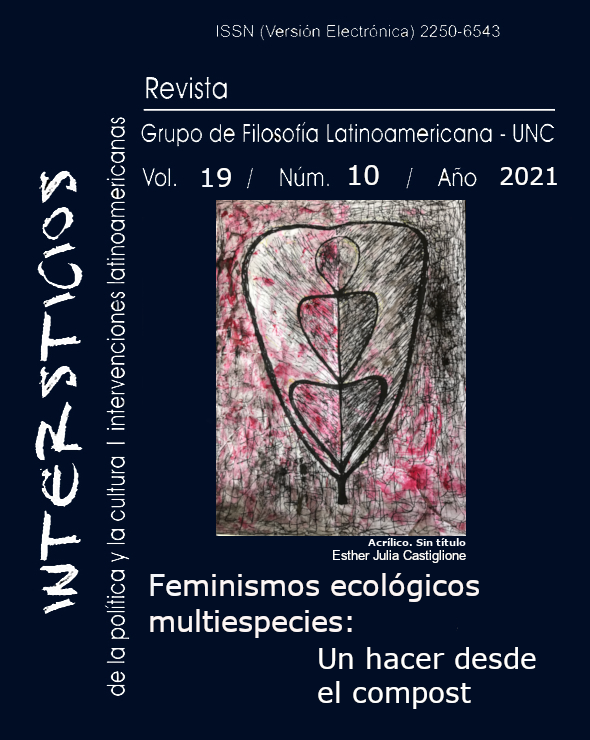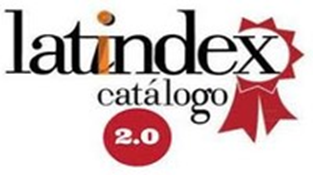An agri-food model from the crossroads between feminism and agroecology. The case of the Women's Front of the Land Workers Union - Argentina
Keywords:
Gender, Union Workers of the Earth, Agro ecologyAbstract
This article analyzes the organizational experience of the Gender Front of the Land Workers Union –UTT-, a national organization that brings together around 20,000 families of small producers in the Argentine Republic. At present, this rural social movement prefigures new experiences of struggle and organization, from a class and gender perspective, betting on the construction of an alternative agri-food model to the patriarchal capitalist agribusiness, hegemonic paradigm of social and productive relations in rural areas. . Through the analysis of articles, bibliography and testimonies of referents of the organization, it is proposed to show how the construction and implementation of a new agri-food model with a gender perspective is an existing reality in various parts of the country, based on the politics and the doing of the Union of Workers of the Earth and the secretariat of Gender of the organization. In a capitalist and patriarchal system where agribusiness prevails as a paradigm and model of productive, economic and social relations, it is interesting to investigate, learn about and systematize an alternative proposal, which raises new forms of organization, production and commercialization, from an approach that contemplates the social dimension of peasant labor with a gender perspective, understanding that there is no possibility of transforming the current system, without disrupting the generic sex relations of oppression and exploitation that operate in the rural food-producing sector
Downloads
References
Altieri, M A (2010). La revolución agroecológica de América Latina: Rescatar la naturaleza, asegurar la soberanía alimentaria y empoderar al campesino. El Otro Derecho, 42 (pp.- 1-41) Recuperado de http://biblioteca.clacso.edu.ar/Colombia/ilsa/20130711054327/5.pdf
Cabaleiro, F (2019). En la Argentina se utilizan más de 500 millones de litros/kilos de agro tóxicos por año. Revista Bio Diversidad. Recuperado de https://www.biodiversidadla.org/Documentos/En-la-Argentina-se-utilizan-mas-de-500-millones-de-litros-kilos-de-agrotoxicos-por-ano
Carosio, A. Sagón Rodríguez, M. (2017). Feminismos, pensamiento crítico y propuestas alternativas en América Latina. Buenos Aires: CLACSO.
Colombo, R. (2019). Notas sobre las fumigaciones con agro tóxicos. Informe Ambiental Anual Farn. (pp. 1-23) Recuperado de https://farn.org.ar/iafonline2019/wp-content/uploads/2019/07/3.3_Colombo-R_DDHH-y-ambiente-en-Argentina-Notas-sobre-las-fumigaciones-con-agrotoxicos.pdf
Duré, E. Palau, M. (2018) Mujeres y agro negocios: una aproximación al impacto y las estrategias utilizadas. BASE-IS, Asunción.
Domínguez, D. (2015). La Soberanía Alimentaria como enfoque crítico y orientación alternativa del sistema agroalimentario global. Pensamiento Americano, 8 (15), 146-175. Recuperado de https://ri.conicet.gov.ar/bitstream/handle/11336/55264/CONICET_Digital_Nro.756ac4d8-cbfb-4ffc-86d1-7b69871f0849_A.pdf?sequence=2&isAllowed=y
Elmhirst, R. (2018) Ecologías políticas feministas. Perspectivas situadas y abordajes emergentes. Recuperado de https://www.ecologiapolitica.info/?p=10162
Filardi, M. (2018) Un modelo agroalimentario es necesario, urgente y posible. Academia.edu, 243-267. Recuperado de https://www.academia.edu/36792959/Un_modelo_agroalimentario_es_necesario_urgente_y_posible
Federici, S. (2004) Calibán y la bruja. Mujeres, cuerpo y acumulación originaria. Traficantes de sueños. Madrid.
Fraser, N. (2014) Tras la morada oculta de Marx. Por una concepción ampliada del capitalismo. New Left Review 86, 2014, pp. 57-76. Disponible en http://rusredire.lautre.net/wpcontent/uploads/Nancy-Fraser-Tras-la-morada-oculta-de-Marx-NLR-86.pdf
Gago, V. (2019) La potencia feminista o el deseo de cambiarlo todo. Traficantes de sueños. Madrid.
Gargallo, F. (2014) Feminismos desde Abya Yala. Editorial digital Corte y Confección, México. Disponible en http://francescagargallo.wordpress.com/
Gras, C. Hernández, V. (2020). “Agronegocios”. En Muzlera y Salomón (Ed.) Diccionario del agro ibero americano. Disponible en: https://www.teseopress.com/diccionarioagro/chapter/agronegocios-2/
Korol, C. (2016) Somos tierra, semilla, rebeldía. Mujeres, tierra y territorio en América Latina. Traficantes de sueños. Madrid.
Lozano, B. R (2016). Feminismo Negro-Afrocolombiano, ancestral, insurgente y cimarrón. Un feminismo en –lugar. Intersticios De La Política y la Cultura. Intervenciones latinoamericanas, 5 (9). 23-48. Recuperado a partir de https://revistas.unc.edu.ar/index.php/intersticios/article/view/14612.
Rosset, P. Martínez Torres, M E. (2013). La vía campesina y agro ecología. El libro abierto de la Vía Campesina celebrando 20 años de lucha. (pp.1-23). Recuperado de https://www.viacampesina.org/es/wp-content/uploads/sites/3/2013/05/ES-09.pdf
Siliprandi, E. (2015) “Una mirada ecofeminista sobre las luchas por la sostenibilidad en el mundo rural” en Puleo, S. (Ed.) Ecología y género en diálogo interdisciplinar (pp. 279-290).
Svampa, M. E; Viale, E. (2014). La expansión del modelo de agro negocios. En Maldesarrollo. La Argentina del extractivismo y el despojo. (pp- 129-150). Madrid: Katz editores.
Svampa, M.E. (2015) Feminismos del Sur y ecofeminismo. Revista Nueva Sociedad, 256. 1-5.Recuperado de https://nuso.org/articulo/feminismos-del-sur-y-ecofeminismo/
Rodríguez, María Carolina. Entrevista telefónica. Mendoza-Buenos Aires. 12, 14 y 18 de abril de 2021.
Suárez, Agustín. Entrevista telefónica Mendoza-Buenos Aires. 14 de abril 2021.
Castro, N. (2020). La agro ecología feminista hace frente al modelo del agro negocio. Disponible en https://www.equaltimes.org/la-agroecologia-feminista-hace#.YNDiq0VKjhk
Declaración de la VI Asamblea de Mujeres Cloc- Vía Campesina. Julio 2019. Disponible en https://viacampesina.org/es/declaracion-vi-asamblea-de-mujeres-cloc-via-campesina/
Comunicado del frente de géneros de la Unión Trabajadores de la Tierra. Disponible en https://uniondetrabajadoresdelatierra.com.ar/genero/
Verdurazo feminista. Somos las mujeres las que alimentamos al pueblo. Octubre, 2019. Disponible en https://uniondetrabajadoresdelatierra.com.ar/tag/verdurazo/
Downloads
Published
Issue
Section
License

This work is licensed under a Creative Commons Attribution-NonCommercial-ShareAlike 4.0 International License.
Authors who have publications with this journal agree to the following terms:
a. Authors will retain their copyright and grant the journal the right of first publication of their work, which will simultaneously be subject to the Creative Commons Attribution License that allows third parties to share the work as long as its author and first publication in this journal are indicated.
b. Authors may adopt other non-exclusive license agreements for distribution of the published version of the work (e.g., deposit it in an institutional telematic archive or publish it in a monographic volume) as long as the initial publication in this journal is indicated.
c. Authors are allowed and encouraged to disseminate their work through the Internet (e.g., in institutional telematic archives or on their web page) after the publication process, which may produce interesting exchanges and increase citations of the published work (see The effect of open access).











